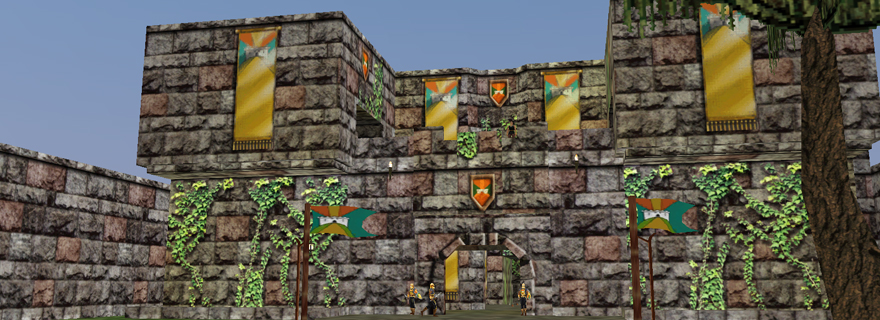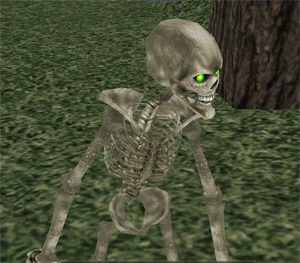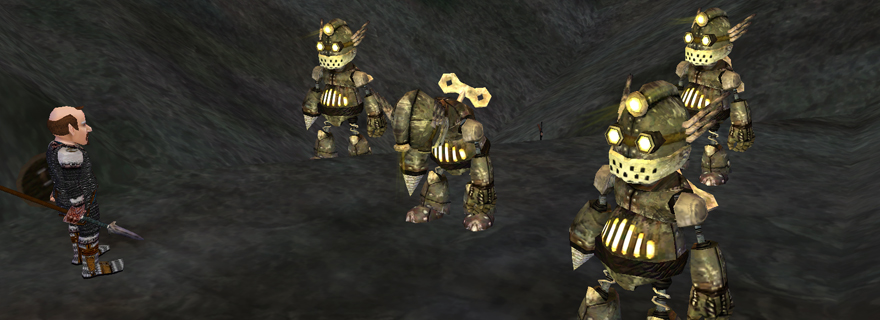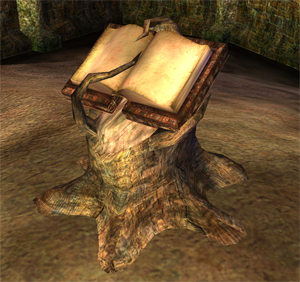
When EverQuest’s newest progression server Ragefire came online then took an immediate nosedive, I sprang from my chair cheering.
Hey now, don’t aim those eye daggers at me! Hear me out. My revelry was not because I wanted the server to fail and die. Quite the opposite, in fact: The reception it received, and the fact that so many were interested in this throw back to the olden days, was what was making me dance in the aisle and pump my fist with glee. It is a heartening blip on the radar of current game development, development that more often than not moves ever further down the instant-gratification road. It means people are not just paying lip service to the ideal of how things used to be; they are acting on it, even speaking with their wallets. More than anything it says old school is not dead.
And man, that is worth cheering about.
 Glory days
Glory days
Nearly everyone has slipped into waxing nostalgic about gaming of yore at some point. People start, continue, and even end conversations (and internet arguments) with “Things were better back when…”. But there are plenty of folks who dismiss such claims by saying that gamers are seeing things through the blurred vision of time passage. These detractors insist that no one actually wants to go back and play like that and that if the chance arose, it would fail. Why waste devs’ time and effort? Progress is ever forward. Right?
Maybe not. Not everyone believes “progress” has always been a net positive. There are a great many things that plain and simply were done better in the past than they are done now. And there is certainly something to be said for taking the time to savor gaming; it doesn’t all have to be fast-paced and immediate. But will devs actually believe this? Would any put this theory to the test? Do some old-school gamers really want such things back, or are they really just wistfully glancing over their shoulders through rose-colored glasses?
The launch fiasco of Ragefire says that yes, there is a market for things of the past. Yes, there are people who would pony up a full subscription price, the cost of the All-Access plan, which is required to join the progression server — enough of them, in fact, that a second server had to be brought online to handle the load.
Should this really be such a surprise? People have been asking for a return to those days of yore. I guess no one really considered that they were serious. It’s not as if this older-is-better phenomenon is out of the blue; even before you look into the gaming sector, there is quite the precedent for appreciation and even preference for things that aren’t all shiny and new. Just look at all the antiques and vintage clothing in the world that are loved — and bought — by many. So why can’t there be the same market for vintage gaming? Call me old-fashioned in my gaming. That’s fine; I am old-fashioned in many aspects of my life. I am proud of that.
 A bad beginning is good
A bad beginning is good
How bad was the Ragefire launch? Even though devs gave Ragefire double the population capacity of previous progression servers in anticipation of the interest, they still grossly underestimated the number of players who’d want to be a part of it, and the server was immediately overloaded as the throngs of eager fans descended. It was a laggy lag-fest of lagginess for those who managed to enter. And those were the lucky ones! Tons more were unable to even log in to try to play (or stand there pinned by the lag, as the case may be). Fans were pretty up-in-arms when the server was pounded beyond recognition — and playability. There were riots. And it was all a beautiful thing.
Thanks to EQ’s launch of this particular server, there is hope for old school. Ragefire serves as an example that gamers really do want to relive these past experiences, and perhaps more studios will take note. Daybreak has and will be adding EverQuest II to the time-locked server mix later this year. I am hoping that as time passes, even more devs will see that there really is a market for those older systems. We are putting our money where our mouths are, and if we keep doing so, perhaps we’ll see more of a return of these old school gaming features we miss and long for.
Look, none of us is saying that the new ways are all bad. (OK, maybe one or two are.) But why ignore a loyal demographic who happens to be a place in life to have more disposable income than ever before? Have you heard the song about friendship? I like to sing it this way: “Make new games, but keep the old. One is silver and the other gold.” Do I think that every game needs to revert back to the old ways? No. But I think this does give a resounding “Yes!” to the question on whether or not this could be a viable business proposition. I am not advocating for a complete reversion to yesteryear in gaming or arguing that new should be thrown out in favor of old. I readily admit there is good to be found in new stuff, too, and room for a variety of preferences and playstyles in gaming. Instead, give me what I want to spend my money and time on, and I’ll be a loyal customer.
 Taking your time
Taking your time
Ragefire also lends credence to the argument that gamers don’t need everything to be instant. In an age where so many eyes are looking to mobile as the (only?) future, the market for slower-paced, long-term games that require a bigger commitment is ignored. Right now the tendency seems to be to make all play sessions short and rewards nearly instant to keep players engaged lest they move on to something else. But look at this progression server: Before a new expansion can be unlocked, not only does all of the active content have to be beaten (like all the raid bosses), but six months has to pass. Six months! That’s an eternity compared to the set-up of some games with self-contained play sessions lasting in just minutes. Not everyone is in a rush.
And what about community cohesion? The final requirement for Ragefire to progress is that the majority of the active players on the server need to vote to open up the next expansion. Folks needing to work together for goals (killing raid bosses) as well as getting new content? That’s another part of old school I like to see!
Frankly put, newer is not always better. And accepting that just might help devs to make a profit by bringing players the games they want instead of just what devs think players want.
 Live long and prosper, progression
Live long and prosper, progression
Some argue that you cannot relive the glory days. It’s not just because the game is different; it is because you are different. You aren’t the same person in the same circumstance as the one that had the initial experience. In that sense the sentiment is true. But I don’t think reliving is about mimicking the exact experience; instead, it’s about creating a new experience that has elements of the old. And which elements are most important in your recreation will determine how successful that recreation can be achieved. If devs find out which elements are key to that feeling, then they can capitalize on the nostalgia. We won’t mind if it give us a game we long for, really!
Will the nostalgia wear off and find these two new server worlds barren of population? I certainly hope not! But eyes will be on how well this all plays out over time. I am rooting for it to maintain a healthy population. I think it can be done. And it needs to in order to convince others that doing so is a worthy endeavor.
 The EverQuest franchise is a vast realm, and sometimes MJ Guthrie gets lost in it all! Join her as she explores all the nooks and crannies from Antonica to Zek. Running biweekly on Thursdays, EverQuesting is your resource for all things EverQuest, EverQuest II, and Daybreak. And keep an eye out for MJ’s OPTV adventures!
The EverQuest franchise is a vast realm, and sometimes MJ Guthrie gets lost in it all! Join her as she explores all the nooks and crannies from Antonica to Zek. Running biweekly on Thursdays, EverQuesting is your resource for all things EverQuest, EverQuest II, and Daybreak. And keep an eye out for MJ’s OPTV adventures!













